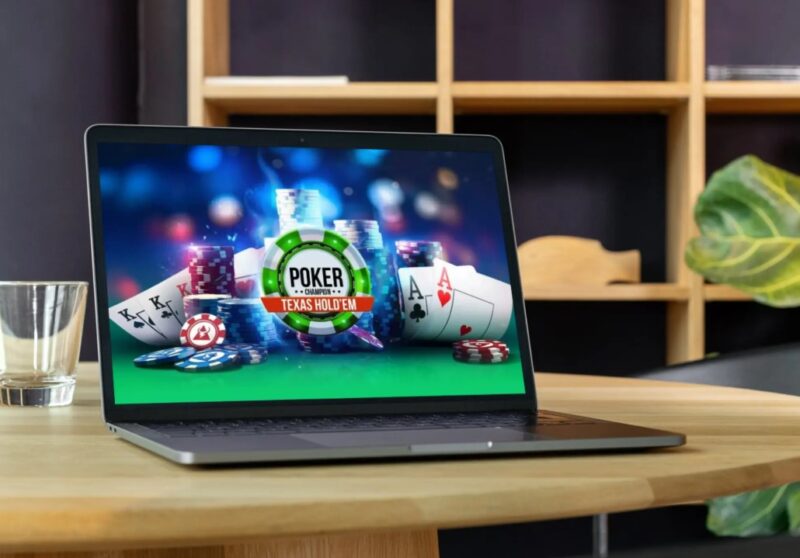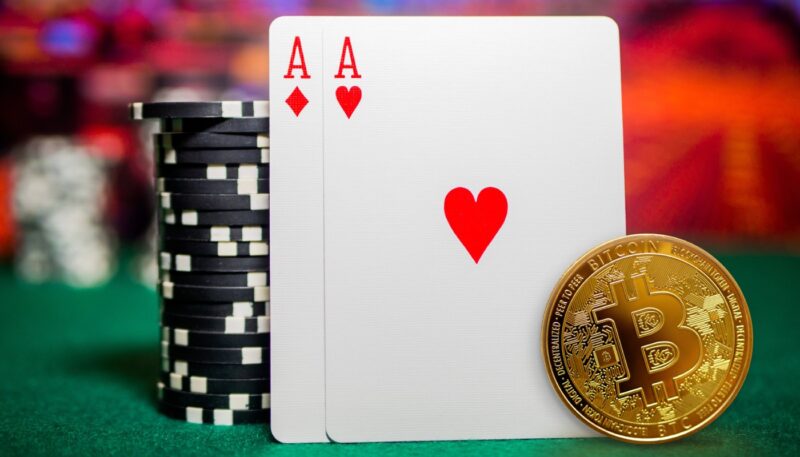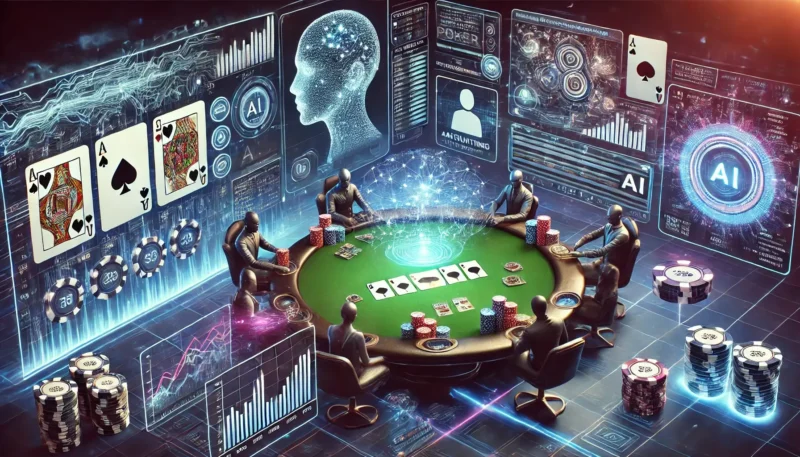Poker never stays the same for long. From backroom tables to digital chips, the game has always adapted to survive. But now, the shift is more aggressive, more technical, and far more global. Whether you’re a seasoned player or a curious observer, you’ll notice that poker is turning into something else entirely.
The bluff is no longer just psychological. It’s algorithmic. The tell isn’t just in the eyes. It’s in the data. What poker was even five years ago no longer reflects what it’s becoming. The evolution is real—and it’s changing everything.
Tech is Changing the Core of Poker
Software tools aren’t just optional anymore. They are essential for serious players. Solvers, trackers, HUDs—every serious online player is using them. These tools show optimal betting lines, analyze opponents, and find leaks in your own play. It’s not just about instincts anymore. Precision matters more than ever.
Solvers like PioSOLVER or GTO+ allow users to simulate millions of hands in different spots. This leads to tighter, more optimal decision-making. The edge now lies in prep, not just play.
That doesn’t mean the human element has vanished. Live games still demand real-time judgment. But in online settings, you’re playing against opponents backed by powerful analytics. Poker is now part sport, part science.
Adapt or get buried. The tech gap is widening. Players who ignore it fall behind, fast.
Online Platforms Redefine the Playing Field

Online poker is no longer just an alternative—it’s the main stage for most players. But not all platforms are equal, and that’s where reviews play a huge role.
Websites like pokermira give players a serious advantage. With dozens of online casinos available, it’s easy to waste time and money on unreliable platforms. Casino review sites simplify that decision. They list safe, fair, and high-quality options. It cuts through the clutter so you can find platforms that fit your style and budget.
Online platforms have also introduced innovations like:
- Anonymous tables to prevent targeting
- Fast-fold poker for faster hands
- Loyalty programs tailored to high-volume players
Each of these updates aims to enhance both experience and fairness. With the rise of mobile apps, poker has gone truly global.
Tournament Poker is Adapting
Live tournaments are evolving in real time. Event organizers are shortening levels, restructuring prize pools, and modifying blind structures. It’s about entertainment value now.
Spectator appeal matters. Streamed tournaments get more attention when action is fast, and decisions come quicker. The World Series of Poker, European Poker Tour, and Triton Series are all adjusting formats.
Online tournaments also now feature hybrid structures—early levels played online, final tables live. This hybrid setup saves costs and opens up access for more players globally.
Short Deck Hold’em is another shift worth watching. Fewer cards, higher variance, and more action. It appeals to gamblers who like faster play and bigger swings.
The Role of AI in Poker Strategy

Artificial intelligence changed everything. First, it was just a training tool. Now it’s part of the competition.
Bots have become dangerously advanced. Tools like Libratus and Pluribus proved that AI could beat elite professionals in no-limit hold ’em. This forced players to elevate their strategy or risk irrelevance.
AI teaches concepts like:
- Minimum defense frequency (MDF)
- Balanced range construction
- Optimal bet sizing per street
Players now study AI-generated hand histories to sharpen their game. Even recreational players benefit from AI-powered tools integrated into mobile apps and websites.
Still, tournament organizers and online platforms constantly battle to detect and remove real-time bot usage. The arms race between detection software and rogue AI will define poker’s ethical future.
Player Behavior is Shifting Fast
The new poker player doesn’t sit at the same local cash table every week. They move between apps, formats, and buy-in levels. They’re younger, more data-driven, and more diverse.
What they want:
- Instant access through mobile
- Educational content through YouTube or Twitch
- Communities built around strategy, not luck
They aren’t necessarily gambling for fun. Many view it as a side hustle or mental sport. That attitude drives demand for training content, coaching groups, and forums.
Twitch streamers like Lex Veldhuis and YouTube analysts like Jonathan Little are shaping the next generation. These influencers teach modern poker. Not by glorifying big wins, but by breaking down hand logic in real time.
Crypto and Blockchain in Poker’s Future

Some online platforms now accept crypto for deposits and payouts. That’s more than convenience. It’s about privacy, speed, and global access.
Blockchain technology also holds potential for:
- Verifying fairness of hands and shuffles
- Transparent prize pool distribution
- Anonymous but secure player identities
Platforms that integrate these features may appeal to privacy-focused players who don’t trust centralized systems. It also opens poker to players in regions with strict banking rules.
However, crypto volatility and regulation remain major hurdles. Until those issues stabilize, crypto poker will remain a niche within the bigger game.
Casual Poker is Thriving Too
It’s not just professionals evolving. Recreational poker is exploding. Home games moved to online platforms during the pandemic. Many stuck with it.
Apps like Poker Bros, ClubGG, and Upoker offer club-based models where friends can run private games, set blinds, and manage invites. This setup fits casual groups who want control over their game flow.
Plus, influencers and podcasts keep casual players connected. They hear interviews with pros, breakdowns of major tournaments, and fun side stories. The game feels accessible again.
What Will Poker Look Like in 2030?

Some clear predictions can already be made:
- More hybrid events ─ Digital early rounds, live finals
- Full integration of AI coaching into mobile poker apps
- NFT-based digital identities for player verification
- Increased streaming and influencer partnerships
The biggest change, though, will be psychological. Players will no longer view poker as a gamble, but as a performance. Like chess or esports, poker is becoming a battleground of strategy, stamina, and software.
Expect to see:
- Less live bluffing, more GTO-based aggression
- Increased use of biometric tools to prevent cheating
- Stronger rules for online fairness and transparency
Poker will become more regulated, more technical, and more performance-based. But the core thrill—reading your opponent, making a bold move, walking away with the pot—that won’t fade.
Conclusion
Poker is transforming fast. The future isn’t about smoky backrooms or lucky rivers. It’s about data, precision, and global access. Online platforms, AI, new formats, and shifting player mindsets are pushing poker forward.
To keep up, players must rethink how they study, where they play, and what tools they use. Whether you play for a living or just enjoy a weekend tournament, the message is clear:
The poker you knew is gone. The game ahead is smarter, faster, and global.

